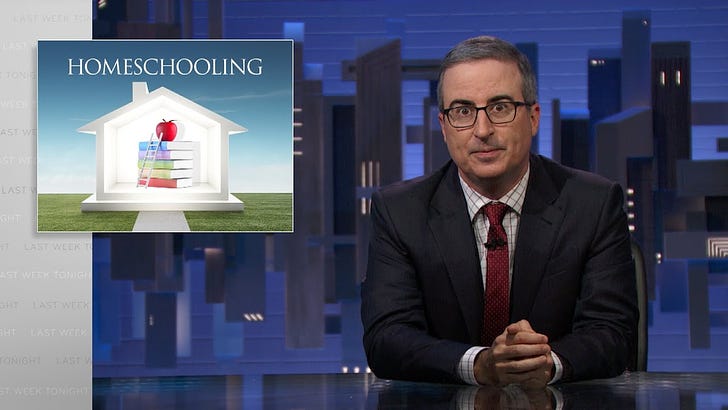John Oliver Is Worried about Nazi Homeschoolers
But is he more likely to find undesirables somewhere else?
Keep reading with a 7-day free trial
Subscribe to Shiny Herd to keep reading this post and get 7 days of free access to the full post archives.




